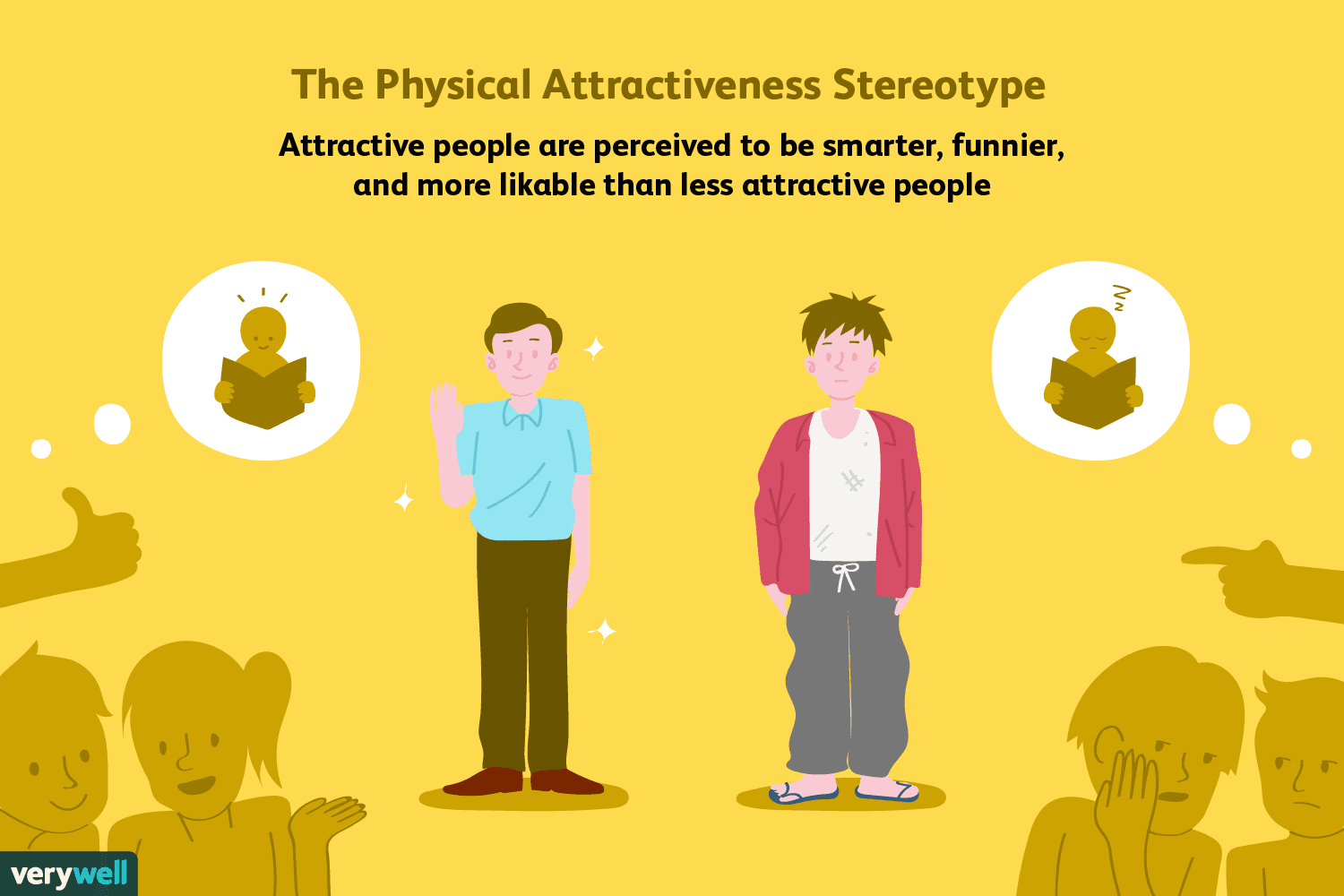There is an interesting phenomenon in psychology called the Halo Effect. Simply put, it means that we can easily assume that someone else is just as good in other areas because of one of their good qualities. For example, have you ever seen a good-looking celebrity and thought that they must be a good actor and a good person? Or when you see a well-dressed and well-spoken person, you naturally think that he or she must be very capable? Even when you see a beautiful cell phone, you subconsciously believe that its performance must be great. In fact, the halo effect is quietly at work behind all these feelings.
Understanding the halo effect not only helps us to be more popular in social situations, but also helps us to avoid falling into the trap of thinking. Today, let’s have a simple, easy-to-understand conversation about the halo effect and how to use it intelligently.
What is the Halo Effect?
The concept of the halo effect was introduced by American psychologist Edward Thorndike in the 1920s. He found that when people evaluate others, they often rely on their initial good or bad feelings and then infer other aspects of that person’s characteristics.
Simply put, if we are pleased with one characteristic of a person, it is easy to casually assume that they are good in other areas as well. The reverse is also true; if the other person displeases us in one area, we will also think that they may not be good in other areas.

In the 1970s, social psychologists Richard Nisbett and Wilson conducted an experiment. They had students watch two different videos of the same teacher. In one video, the teacher was warm and answered questions gently; in the other video, this teacher was cold and had a harsh tone. At the end of the videos, the students were asked to rate the teacher’s appearance, accent, and speaking style. The result was that the students who watched the “friendly” video generally found the teacher more attractive, more pleasant to talk to, and even the strong Belgian accent became charming. Those who watched the “cold” version gave him a lower grade.
The halo effect is sometimes called the halo effect. Like the circle of light around the moon, it spreads outward from the center, and a small impression affects the overall perception.
For example, if a person is particularly polite and has a friendly smile when we first meet him, we may subconsciously feel that he has a good personality and is reliable in his work, and be willing to trust him more quickly. On the other hand, if a person is unkempt and cold, even without seeing his actual work performance, we are likely to conclude that he is “no good”.
In short, the halo effect makes it easy for us to “generalize,” and such judgments are likely to be inaccurate.
Effects of the Halo Effect.
Positive effects of the halo effect.
In interpersonal relationships, the halo effect can help us establish rapport more quickly.
For example, if a teacher’s teaching is interesting and easy to understand, students are likely to find the teacher knowledgeable and nice. Students will be more willing to listen to him, and the classroom atmosphere will be more active.
In the business world, the halo effect is equally powerful. For example, Apple’s mobile phone design is simple and beautiful, the user experience is also very good, so people naturally feel that “Apple’s every product is very powerful”, even if the price is high, there are many people willing to buy. Because of the halo effect, the brand has won users’ trust and loyalty.
Therefore, if the halo effect is properly used, it not only makes the image of the individual better, but also makes it easier for the brand to get the market and opportunities.
Negative Effects of the Halo Effect.
Of course, the halo effect has its downside.
For example, when recruiting for a company, an interviewer may overlook a candidate’s lack of professional skills simply because he or she is well dressed and speaks fluent English.
The same is true in relationships. Some people overlook personality incompatibilities and divergent interests because the other person is good-looking or financially secure. When they really get to know each other, they realize that there is a huge gap, and the feelings they invested early on may have been wasted.
Similarly, when the public evaluates celebrities and politicians, it is easy to see only their accomplishments in one aspect and overlook their other shortcomings. Not only does this mislead the public, but it can also allow injustices to be overlooked.
Psychological Reasons for the Halo Effect.
1. The Primacy Effect at Work.
The primacy effect refers to the fact that the first impression we have of someone or something sticks in our minds and influences subsequent perceptions.
For example, the first time you meet, the other party is dressed properly, smiles kindly, you will unconsciously find all kinds of reasons to prove that “others are good. Even if the other party makes a small mistake, you are also easy to forgive.
The halo effect is often spread based on the first impression.
2. The brain likes to cut corners.
Thousands of pieces of information enter our brains every day. If we analyze everything in detail, we will get tired. Therefore, to save energy, the brain often makes quick judgments based on a little bit of information.
The halo effect is a shortcut that the brain takes to be “lazy. Although it saves time and effort, it can easily lead to bias.
3. Emotions work on the sly.
How we feel also affects our judgment.
If you like someone, you tend to see the good things about them; if you hate someone, you tend to magnify the bad things about them. The halo effect is taking that emotion and extending it to the evaluation of the whole.
How can you use the halo effect to make yourself more popular?
1. Create your personal brand.
In the interpersonal and work environment, find one of your obvious strengths and make it your “signature”.
For example, if you are a good communicator, show it more in public; if you are a good professional, share your insights and accomplishments in your work.
When others recognize you, they can quickly associate you with this “asset” and other aspects will be added to the score.
2. The first time you meet someone is very important and should be taken seriously!
Before you meet, you can learn about each other’s interests and backgrounds; dress neatly and generously; speak politely and naturally; smile, maintain eye contact, and let people feel your confidence and friendliness.
A good first impression can greatly increase your chances of being liked in relationships.
3. Create a relaxed atmosphere.
When you are with others, try to make the atmosphere as relaxing as possible. You can share some happy things or organize some small activities.
If people feel relaxed and happy because of you, they will easily like you emotionally and be more willing to recognize other aspects of you.
How do you avoid being fooled by the halo effect?
1. Stay calm and rational.
When evaluating people or things, remember: don’t jump to conclusions based on first impressions.
For example, when you are hiring, you should not only look at the appearance and conversation, but also examine the actual experience and ability of the applicant; when you are buying something, you should not only look at the brand and appearance, but also understand the performance, price, after-sales service, and other aspects.
Being rational can reduce false judgments.
2. Develop the habit of reflection.
Periodically look back on your views of people or things and think about whether your initial favorable or unfavorable feelings influenced your subsequent judgments.
When you discover new information, don’t be stubborn and adjust your perceptions in time.
In this way, your perception will become more and more accurate.
3. Gather information from several sources.
Don’t just listen to one person or read one type of evaluation.
For example, if you are evaluating a coworker, you can listen to what other coworkers have to say in addition to your own feelings; if you are buying a product, you can look at reviews from different websites and different users.
The more comprehensive the information, the more accurate the judgment will be, and it will not be easy to be fooled by superficial phenomena.
Summary.
The halo effect is like a double-edged sword: if you use it well, it can help you in your life and work; if you don’t use it well, you will easily suffer.
Smart people will learn to control the halo effect and make it work for them.
Remember, don’t be easily mesmerized by a particular quality in another person, and don’t make decisions based on fleeting good feelings. Maintaining a little rationality in the process of getting to know others will allow you to make more friends, win more opportunities, and avoid detours.
Mastering the halo effect is like having another tool to perceive the world. In the future, I hope you will be able to use it to walk more steadily and farther on the road of life!

